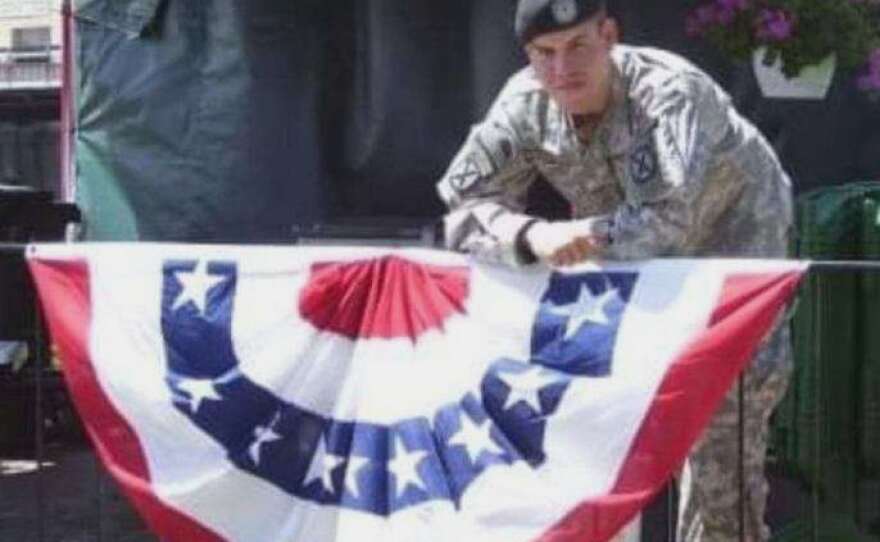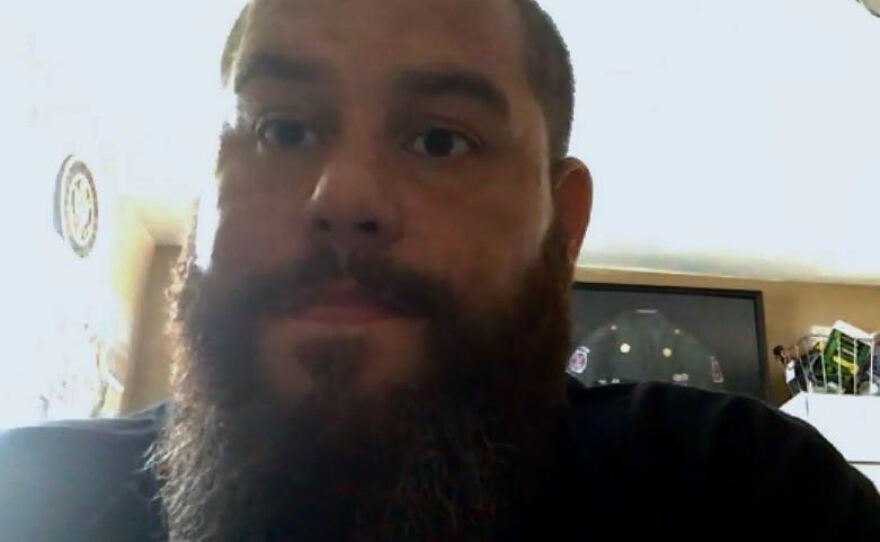In the months prior to the fall of Kabul in August 2021, Nick Pilozzi was reaching out to help other veterans.
Last July, he described the lasting impact of a helicopter crash that he narrowly survived 15 years ago. The crash killed 10 soldiers in Afghanistan.

It was part of a story looking back at the life of Justin O’Donohoe of San Diego, who was one of the soldiers who died that day.
“The damage that comes from this stuff is unbelievable,” Pilozzi said at the time. “None of these families are ever going to be the same after this.”
Pilozzi questioned why the war had dragged on so long. He appeared again on a virtual panel about the war in Afghanistan, sponsored by KPBS, in September. He sounded weary when asked how he was doing.
“It’s been pretty tough to watch what was going on over there. Having so many friends that have died. And you know I was wounded and tons of friends were wounded. You kind of question what it was all about,” Pilozzi said during the panel.

In February, months after most people turned away from the daily images coming out of Afghanistan, Pilozzi killed himself.
After the war ended, his brother Anthony says Pilozzi fixated on the idea that his friends’ sacrifice was meaningless.
“He just immersed himself into news articles, YouTube, news stations on TV,” he said. “It was pretty rough. The easiest way I could describe it was: He was a drug addict. That news was his drug.”
Anthony said Nick was getting counseling at the local VA and working with veterans groups near his home in upstate New York. Occasionally, he would open up to his brother, but Anthony didn’t see his death coming.
Sonya Norman, who is with the San Diego VA and the VA National Center for PTSD, never met Pilozzi, but she said survivor’s guilt is strongly linked to post-traumatic stress disorder. The symptoms can come up years later, as a person’s view of what happened changes.
“Even if it’s: 'I didn't deserve to survive — who am I when these other people had families and were doing other things?'” Norman said.
The guilt often gets in the way of treatment, Norman said.
Duane France, a Colorado Springs-based mental health counselor who specializes in treating veterans, is also a combat vet and hosts podcasts geared toward treating veterans. Some of his patients were distressed watching the news from Afghanistan in summer.
“With this 'I don't deserve to feel better' and 'I don't deserve good things' and kind of that self-destructive piece, and you can see how it can be this, be involved in this downward slide toward suicide,” France said.
Images coming out of Ukraine now can also trigger past trauma. You can’t tell when that distress may lead down a path to suicide, according to France.
“Dozens of things have to go wrong in someone's life for them to get to the place where they're in a suicidal crisis, but maybe only one thing needs to go right,” France said. “There are a number of protective factors that may keep servicemembers and veterans from getting into a suicidal crisis.”
Veterans need to find ways to keep connected and not be afraid to seek counseling. Overall, the number of veteran suicides have slowly declined over the past couple of years. Still, veterans make up about 7% of the US adult population but account for 20% of suicides, according to the VA National Center for PTSD.
Guns were not a factor in Pilozzi’s death, but a majority of veteran suicides involve firearms. Asking a friend to keep firearms for troubled vets or at least keeping their guns under lock could help.
The VA and other organizations provide free trigger locks. It can be just enough time for a vet to reconsider.
“You want to be able to be with them to be able to be there with them when they need you, the most,” retired Capt. Ross Berkoff said.
Berkoff served two tours in Afghanistan with the 10th Mountain Division. Pilozzi is the fourth suicide among the troops he served with. Berkoff always feels like he needs to do more to keep in contact.
“The Facebook ‘I’m here for you buddy' kind of message. That’s fine,” he said. “I’m sure it’s well-intended, but I don't know what answer is here. How do we stop this from happening again?”
If you are experiencing thoughts of suicide, help is available 24 hours a day. Call the national Veterans Crisis Line at 1-800-273-8255.





